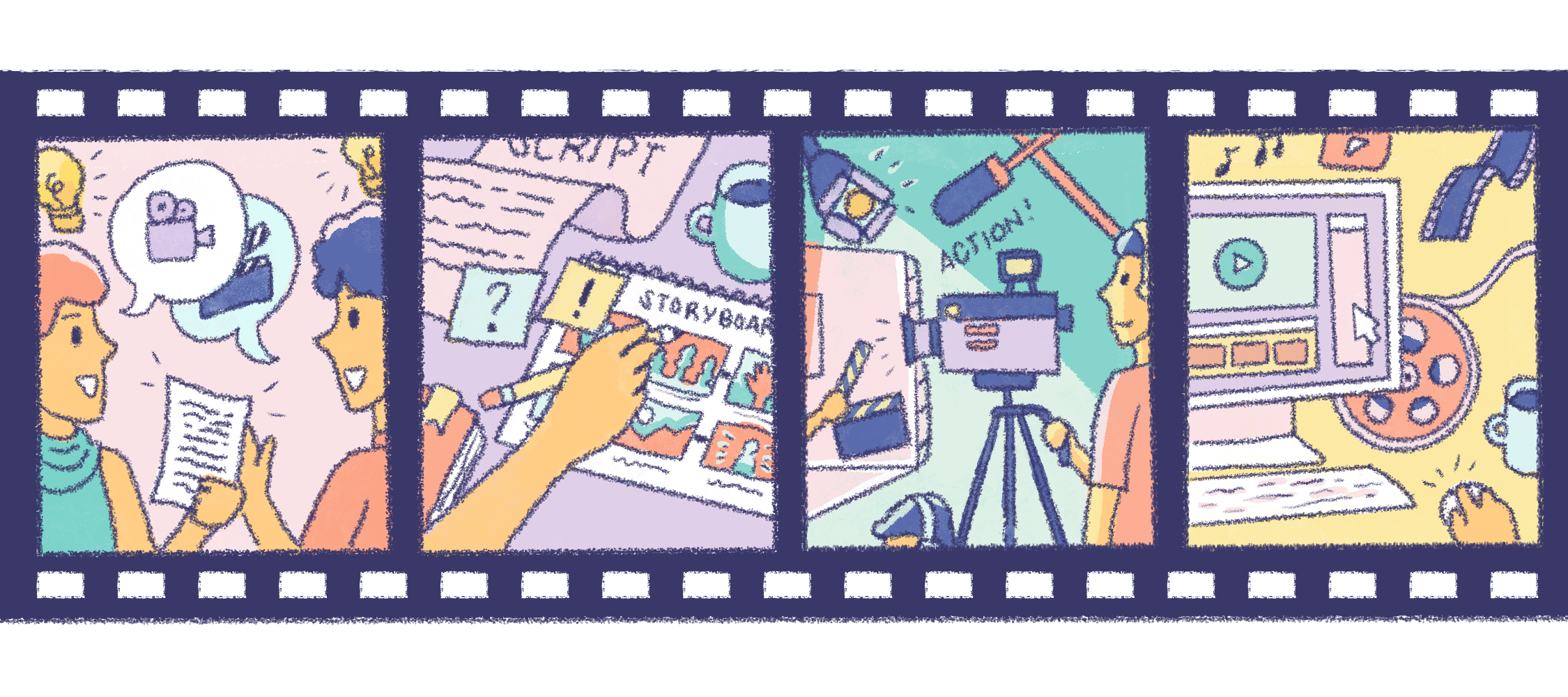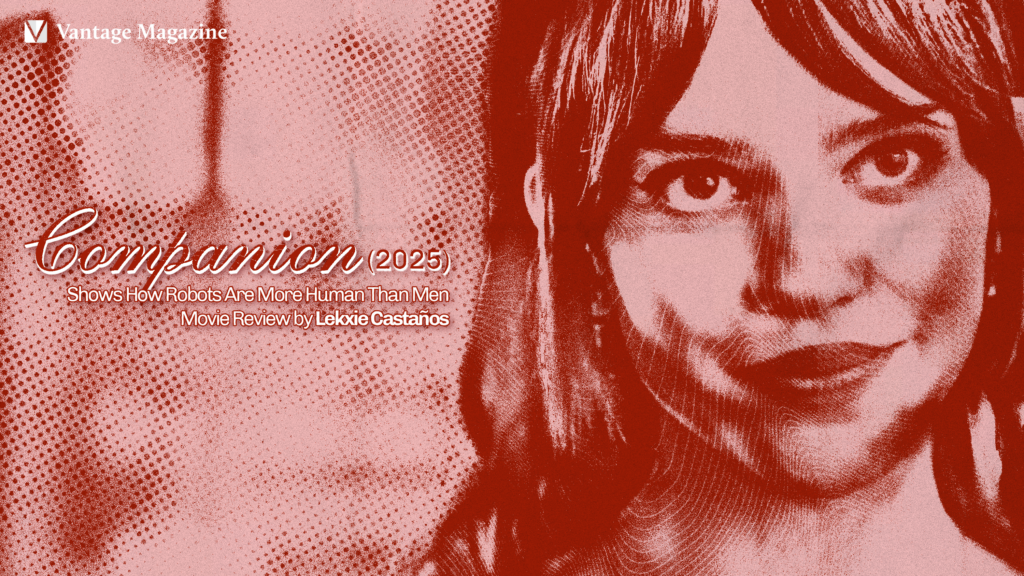Like most entertainment industries, the local film industry was hit hard by the pandemic. While the crisis spelled doom for many film students limited by the lockdown, a virtual community dedicated to filmmaking, films and everything in between blossomed. Despite this difficult situation we are all in, film is not dead, and Cine Sundays is here to keep it alive.
Dan Villegas, whose oeuvre as a director includes Exes Baggage (2014) and Hintayan ng Langit (2018), created a Facebook community that holds weekly Zoom forums on film with industry professionals as guests. In this Vantage Magazine special, we sit down with Villegas, more commonly known as “Direk Dan,” and three core team members of the community: Communication juniors Jennifer Clemente, Samantha Samarita, and Frances Villeroz. They share with us the story of how Cine Sundays came to be, what it’s doing, and what they think is in store for the future of Filipino film.
A temporary thing
Before becoming a lively community of over 2,600 members, the first Cine Sundays session was an informal kwentuhan where Direk Dan shared what he knew to Samarita, Clemente, and Villeroz’s circle of friends and orgmates. According to Direk Dan, he was first encouraged by a friend who wanted him to give a talk on the “12 rules of filmmaking.”
Samarita first gave the suggestion for him to give the talk to her friends. Eventually, Clemente helped Samarita get the word out by talking to Ateneo Association of Communication Majors and Loyola Film Circle officers and looking for people who would be interested in attending. Since their circle of connections were primarily Atenean, Cine Sundays was exclusive to them for about two to three weeks. Direk Dan reminded them that these classes would be a “temporary thing” after all.
However, one session became two, then three—and continued on due to the students’ demands. Clemente says, “Our classes were puro technical [lessons] but there are ideologies [and] a lot of things that go into making a film. That’s why it’s important that we get to talk about them on Cine Sundays.”
With that, they also knew that the experiences and imparted knowledge couldn’t be kept to themselves, so they said “why not?” to the possibility of expanding their reach to other schools.
The whys and the hows
The experience of on-site filmmaking varies wildly from what one can learn in university production courses. For Direk Dan, an aspiring filmmaker’s preparation should include having an idea of what it’s like to work in film. “Schools teach you how to make films, but they don’t teach you a career in film-making.” he shares. Cine Sundays offers a taste of that through their sessions.
The sessions take on a two-fold approach: Sometimes, the community holds open forums with industry professionals on topics like film marketing, cinematography, or directing, among others. There, attendees get a glimpse of what it’s like to work in the industry from seasoned filmmakers’ no nonsense anecdotes—presenting both the exciting and the less glamorous sides of the job.
Beyond filmmaking as a profession, Cine Sundays also holds sessions dedicated to film analysis. The core team underscores that their second approach relies on learning why a film was shot, since it is just as important as learning how it was made. These film analysis sessions broke down familiar titles like JP Habac’s I’m Drunk I Love You (2017), Jerrold Tarog’s Goyo: Ang Batang Heneral (2018), and Mikhail Red’s Dead Kids (2019). By understanding the thought processes that materialized into films, Direk Dan hopes that future creators realize the humanistic aspect of film-making: The ideologies and whys that fuel storytelling.
This effort to reinforce film as a profession and craft paves the way for the next generation of filmmakers. For Direk Dan, building and sustaining a community where filmmakers can learn and collaborate keep the film industry healthy. “The goal in this industry is to teach people to be better than you. […] If that cycle continues, it will be a healthy industry.”
Cine Sunday’s foresight extends to the future of the whole Philippine film industry. The core team believes that Cine Sundays is here to stay, so long as there are people eager to learn and share. “Hopefully kami din magiging speakers sa future,” Samarita adds.
What started from Dan Villegas’ philosophy of knowledge-sharing as a means of keeping an industry alive grew into a community of filmmakers—students and professionals—who are all learning from each other. Cine Sundays continues to open its weekend sessions to everyone who are interested in film.For the lucky future batches of students, Direk Dan announced in a tweet that he will be “teaching film in Ateneo and [the College of Saint Benilde]” soon. When asked about what kind of professor “Teacher Dan” would be, his Cine Sundays team agreed that you will always come out wiser and more motivated after spending time with him. Whether it be Cine Sundays or Direk Dan’s debut in the academe, the film industry is finding new ways to grow despite the odds.






